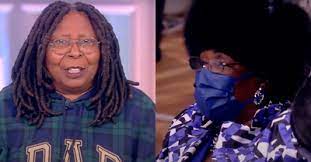Did you know 80% of Black women will develop uterine fibroids? It’s a major health issue among Black Americans.
The National Institute of Environmental Health Sciences reports that 70% to 80% of Black women will develop benign uterine fibroid tumors by their late 40s.

Although all women can develop uterine fibroids, Black women are disproportionately impacted. Research shows that Black women are three times more likely to develop fibroids than white women and are more likely to require surgical treatment.
McLeod Health describes fibroids as “non-cancerous growths in the uterus” and notes that they are the most common pelvic tumors in women. Symptoms can include heavy menstrual bleeding, pelvic pain, and issues caused by the size or location of the fibroids. Fibroids are also a leading reason for hysterectomies.
It’s estimated that 25% of African American women will experience fibroids by the age of 25.
Black women are often underdiagnosed and undertreated when it comes to fibroids, which tend to grow larger in size. Dr. Eric Hardee, co-founder of Houston Fibroids, specializes in a non-invasive procedure called Uterine Fibroid Embolization (UFE) to help Black women avoid a longer, more strenuous recovery. He previously discussed that various factors that increase the likelihood of fibroid development in Black women.
“Black women are more likely to have symptomatic fibroids, with a greater number and larger size, often leading to more severe symptoms,” Dr. Hardee explained.
He also noted, “There’s a genetic predisposition. A recent study found that a genetic marker linked to fibroid development is 2.5 times more common in Black women.”
Studies have identified several factors contributing to this disparity, including higher lifetime stress, increased estrogen exposure, diet, history of abuse, Vitamin D deficiency, and frequent use of hair relaxers. While the exact cause remains unknown, managing these factors is recommended when possible.



